Sorted by date Results 76 - 100 of 169
Currently 36% of North Dakota is experiencing some level of drought as drought conditions continue to persist in the western part of the state. “Drought impacts are at the forefront of many rancher’s minds as we head into the 2022 grazing season,” says Miranda Meehan, North Dakota State University (NDSU) Extension livestock environmental stewardship specialist. “Concerns linger about long-term impacts of the drought on forage production as well as the risk of a continued drought throughout the year.” NDSU specialists will be hosting live webi...
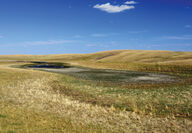
Access to adequate, good quality water will continue to be a challenge for ranchers in North Dakota this spring, according to North Dakota State University (NDSU) Extension livestock environmental stewardship specialist, Miranda Meehan. Many ranchers in the region still depend on surface water sources, such as dugouts and stock dams to provide water to grazing livestock. Due to drought conditions in both 2020 and 2021, many livestock sources either dried up or were potentially toxic to livestock...
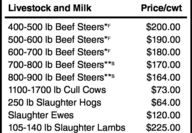
Planning for the future can be a very frustrating process especially in times of market volatility. Planning typically pays high dividends. For most farm and ranch managers, developing realistic commodity price expectations is one of the most difficult and complex tasks of the planning process. To make the planning process easier, North Dakota State University (NDSU) Extension has released its 2022 short- and long-term agricultural planning price projections for North Dakota, says Ron Haugen,...

Farmers can elect coverage and enroll in crop-by-crop Agricultural Risk Coverage-County (ARC-CO) or Price Loss Coverage (PLC) programs within each Farm Service Agency (FSA) farm unit, or ARC-Individual for the entire farm, for the 2022 crop year, says Ron Haugen, North Dakota State University (NDSU) Extension farm management specialist. Although election changes for 2022 are optional, enrollment by signed contract is required for each year of the program. This is an annual decision that farmers...

Farmers will have the opportunity to learn more about the upcoming Agriculture Risk Coverage (ARC) and Price Loss Coverage (PLC) election and the decisions the programs entail during a webinar that North Dakota State University (NDSU) Extension and the North Dakota Farm Service Agency (FSA) are hosting on Thursday, Feb. 3, at 11 a.m. CST. The webinar will also include information on FSA's Noninsured Crop Disaster Assistance Program (NAP). The ARC and PLC sign-up period runs through March 15...
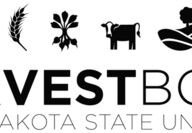
The success, dedication and hard work of outstanding agriculturists in 53 counties in North Dakota and 10 counties in Minnesota were honored during the 47th annual Harvest Bowl program at North Dakota State University on Nov. 19. Information on the outstanding agriculturists listed by county is available at https://bit.ly/2021HBCountyBios, and photos are available at https://bit.ly/2021HBHonoreePhotos. 2021 Harvest Bowl honorees by county, name and city: Adams - Jamie and Nikki Enerson,...

North Dakota State University (NDSU) Extension again will host the Field to Fork "Wednesday Webinar" series starting in February 2022. Experts from across the region will provide information about growing, preserving and preparing specialty-crop fruits and vegetables safely in this seventh annual webinar series that has reached thousands of people The "Field to Fork Wednesday Weekly Webinars" will begin Feb. 16. The webinars will be held online from 2-3 p.m. Central time through April 20. They a...

Farmers can elect coverage and enroll in crop-by-crop Agricultural Risk Coverage-County (ARC-CO) or Price Loss Coverage (PLC) programs within each Farm Service Agency (FSA) farm unit, or ARC-Individual for the entire farm, for the 2022 crop year, says Ron Haugen, North Dakota State University (NDSU) Extension farm management specialist. Although election changes for 2022 are optional, enrollment by signed contract is required for each year of the program. This is an annual decision that farmers...
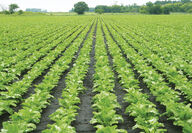
The 52nd annual Sugarbeet Research Reporting Session will be held on Tuesday, Jan. 11, at the West Fargo Convention Center starting at 7:30 a.m. Researchers and Extension specialists from North Dakota State University (NDSU), the University of Minnesota, the U.S. Department of Agriculture, as well as from European research institutes and universities will provide updates on current sugarbeet research. "Each year the Sugarbeet Research and Education Board of Minnesota and North Dakota provides ge...
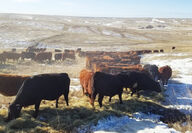
Drought brings many nutritional and animal health-related challenges. Cow performance issues during the grazing season may result from reduced forage quality and quantity. It is possible that cows will enter the fall and winter in lower than desired body condition score and with other potential nutrient deficiencies that may not be noticeable. Vitamin A deficiency is one potential challenge that may arise when feeding drought-affected forages, according to North Dakota State University (NDSU)...
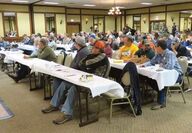
Farmers in the western Dakotas and eastern Montana will have the opportunity to hear nationally-known speakers address topics affecting agriculture in the region during North Dakota University (NDSU) Extension's Diversity, Direction and Dollars agricultural forum. It will be held Tuesday, Jan. 11 at the Roosevelt Grand Dakota Hotel, Dickinson. The forum will provide ideas for improving productivity and decreasing costs while providing high quality food produced in a sustainable manner....
Agricultural producers should do tax planning before the end of the year. “It is that time of the year again to think about year-end tax planning,” says Ron Haugen, North Dakota State University (NDSU) Extension farm management specialist. “Generally, all or most of the government payments that farmers and ranchers received during the year must be reported as income in the year it is received,” says Haugen. “When tax planning, it is best to start with year-to-date income and expenses and estimate them for the remainder of the year,” says Haugen...
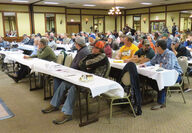
Farmers in the western Dakotas and eastern Montana will have the opportunity to hear nationally-known speakers address topics affecting agriculture in the region during North Dakota University (NDSU) Extension's Diversity, Direction and Dollars agricultural forum. It will be held Tuesday, Jan. 11 at the Roosevelt Grand Dakota Hotel, Dickinson. The forum will provide ideas for improving productivity and decreasing costs while providing high quality food produced in a sustainable manner....
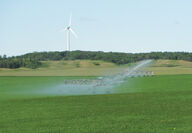
The weather this year has presented many challenges. A drought that started in 2020, a frost in late May and hot, dry weather during the summer had a huge effect on crop production. "Having the ability to irrigate during droughty weather conditions makes a difference in crop production," says Tom Scherer, North Dakota State University (NDSU) Extension agricultural engineer. To help farmers with their irrigation management, NDSU Extension is holding an irrigation workshop in conjunction with the...
The weather this year has presented many challenges. A drought that started in 2020, a frost in late May and hot, dry weather during the summer had a huge effect on crop production. “Having the ability to irrigate during droughty weather conditions makes a difference in crop production,” says Tom Scherer, North Dakota State University (NDSU) Extension agricultural engineer. To help farmers with their irrigation management, NDSU Extension is holding an irrigation workshop in conjunction with the North Dakota Irrigation Association on Thu...
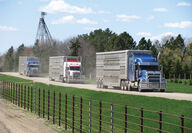
Producers who have relocated their cattle out of state for winter feeding this year should consider having a weed management protocol in place when the cattle return, say North Dakota State University Extension specialists. "If you have sent your cattle to areas where there are known Palmer amaranth, waterhemp or other noxious or troublesome weed issues, it will be important to allow a 'cleanout period' upon return," says Joe Ikley, NDSU Extension weed specialist. "Crop fields are not the...
Late August and September rains have left drought stressed pasture and rangeland in some areas of North Dakota looking green and lush. Leading ranchers to wonder if they should take advantage of this forage, and how grazing will influence forage production in 2022? “The answer to this question is going to depend largely on the grass species in the pasture,” says Miranda Meehan, North Dakota State University Extension livestock environmental stewardship specialist. “If the pasture is comprised of tame grass species such as brome grass or Kentu...
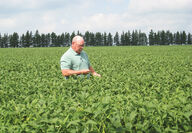
Due to increasing natural gas prices, nitrogen fertilizer prices are relatively high compared to recent years and are expected to remain high and possibly increase through next spring, says Dave Franzen, NDSU Extension soil science specialist. "China has supplied about a third of the world's phosphate, and it has essentially banned exports through 2022," Franzen continues. "That puts the burden of supply on other countries, including the United States." According to Franzen, the U.S. is not in...
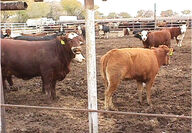
Insect vector transmitted diseases can cause severe disease in wildlife and in some instances domestic livestock. "Two notable infectious diseases transmitted by biting and or sucking insects are Bluetongue and Epizootic Hemorrhagic Disease or EHD," says Gerald Stokka, NDSU Extension veterinarian and livestock stewardship specialist. "The virus that causes EHD is closely related to the Bluetongue virus and is transmitted via insects belonging to the Culicoides species of midges, also known as...
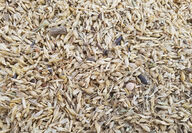
Due to the impacts of widespread drought on forage and hay production in North Dakota, most livestock producers are seeking feed resources to get animals through the upcoming winter. The United States Department of Agriculture recently announced that the Emergency Assistance for Livestock, Honey Bees and Farm-raised Fish (ELAP) program will be expanding to cover feed transportation costs for those impacted by drought. Livestock producers in all North Dakota counties will be eligible. Additional...
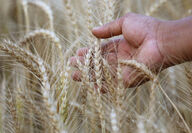
North Dakota State University (NDSU) Agricultural Affairs is seeking the public's input on a new strategic plan. The plan will provide vision and direction for the NDSU College of Agriculture, Food Systems, and Natural Resources, the North Dakota Agricultural Experiment Station and NDSU Extension for the next five years. "We value the needs and priorities of our stakeholders," says Greg Lardy, NDSU vice president for agricultural affairs. "Their input will help us to create the strategies and ta...
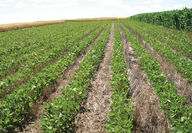
The drought in North Dakota is impacting the yield of small-grain crops such as barley, oats, rye, triticale and wheat, leading some producers to harvest the small grains as hay. The severe lack of moisture also has impacted this year's hay production and many producers are seeking alternative, possibly nontraditional, sources of forage such as cattails, flax, kochia, millet varieties and soybeans. "With limited forage on the market and high prices, it may be a better option to evaluate local...

Following years of field research on soybean planting rates and/or row spacing, North Dakota State University Extension agronomists are updating their recommendations for establishing soybean stands. Their long-term recommendation has been 150,000 plants per acre across row spacings. In 2020, Greg Endres and Hans Kandel, NDSU Extension agronomists, compiled and evaluated data from 37 NDSU trials conducted during 2008 - 2019 across the state. "The objective was to provide a more precise guide for...
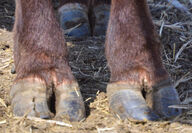
Weather forecasts predict worsening drought conditions in the northern Great Plains for the 2021 growing season, which is bad news for cattle producers. Many cattle operations will find themselves without enough forage and feedstuffs to maintain their current herd size. "Unfortunately, often decisions are made more with emotion than logic during stressful times," says Lisa Pederson, Extension livestock specialist at North Dakota State University's Central Grasslands Research Extension Center...
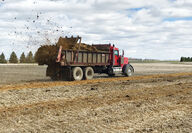
Using manure as fertilizer can lead to the spread of noxious and troublesome weeds. "It is a known fact that weed seeds pass unharmed through the digestive tracts of ruminant animals (cattle, sheep)," says Mary Keena, livestock environmental management specialist based at North Dakota State University's Carrington Research Extension Center. "This means that whatever weed seeds are in the feed or bedding you're using are still viable when they exit the animal as manure. "There is also a line of...